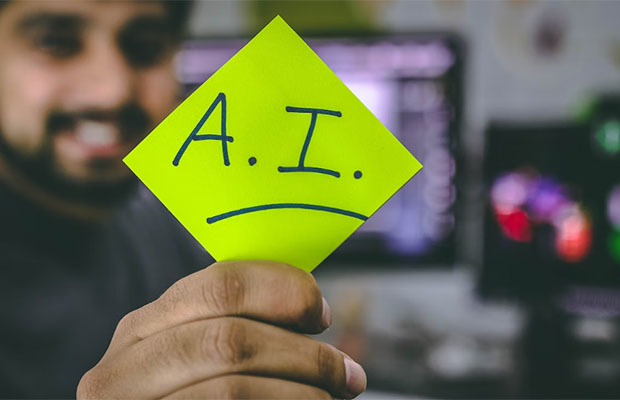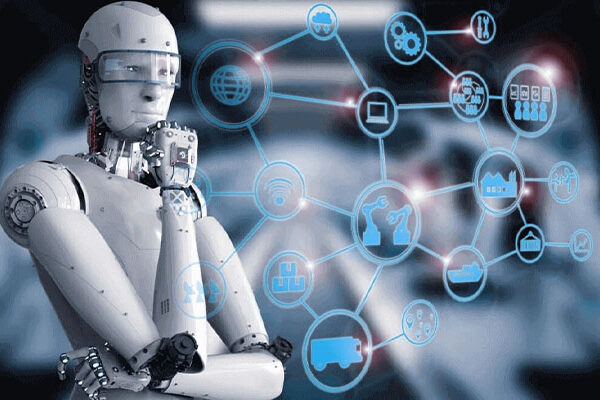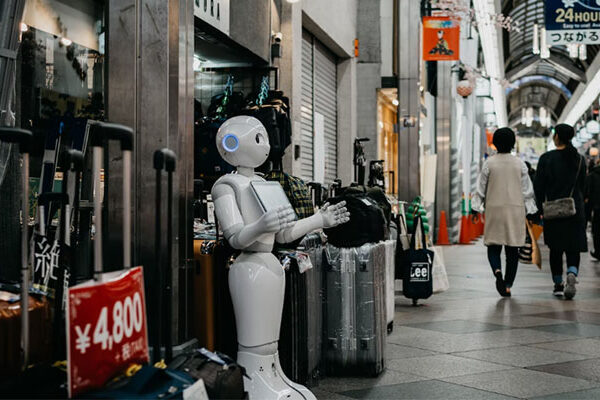One of the newest technologies, artificial intelligence (AI), aims to replicate human reasoning in AI systems. John McCarthy invented the term 1950: The dawn of artificial intelligence.
In actuality, most of us come into contact with AI in one form or another almost daily. AI has quickly infused itself into our daily lives, from checking your smartphone as soon as you wake up to watching another Netflix-recommended movie.
Yet what precisely is Artificial Intelligence? Will it actually benefit humanity in the long run? Well, we’ll talk about a lot of the pros and cons of artificial intelligence in this article.
Table of Contents
What Is Artificial Intelligence?
Let’s first define artificial intelligence (AI) before moving on to its benefits and drawbacks. AI gives a computer program the capacity to think and learn independently, at least from the perspective of a bird. It is a simulation of human intelligence (therefore, artificial) into machines to perform tasks for which we would typically rely on humans. Weak AI, strong AI, and super AI are the three main types of AI based on capabilities.
- Weak AI – Focuses on one task and cannot perform beyond its limitations (common in our daily lives)
- Strong AI – Can understand and learn any intellectual task that a human being can (researchers are striving to reach strong AI)
- Super AI – Surpasses human intelligence and can perform any task better than a human (still a concept)
How Does Artificial Intelligence Function?
Machines with AI capabilities can now perform tasks that were previously only possible for the human brain to complete.
In essence, artificial intelligence enables a computer to think and learn independently.
But how precisely does it operate?
Designing the AI with a specific objective in mind is the first step. It then undergoes training using the data that is currently available to figure out how to best accomplish the stated goal.
When the AI reaches a certain learning stage, it begins to process the data on its own, without help from humans.
It is now expected to use that data on its own to complete the task.
Then, using the information it has gleaned from studying all the data, AI makes predictions.
It improves its strategy going forward by applying what it has learned. In other words, it becomes increasingly intelligent.
This might work out well or it might turn out to be a terrible mistake. However, it now offers a set of benefits and drawbacks that your business and you should be aware of right away.

Pros Of Artificial Intelligence
Future benefits of AI applications could fundamentally transform a number of sectors or industries, including the ones listed below:
1. Diminishes Human Error
Computers can make mistakes, but if they are properly programmed, they won’t make the same errors that people do.
Errors are reduced, accuracy is increased, and precision is possible because AI decisions are made from data that has been compiled with the help of designed algorithms.
Ultimately, fewer mistakes equal savings in both time and resources, so AI turns out to be advantageous for your business.
2. Facilitates Faster Decision-making
Making decisions more quickly and with confidence always helps you save time. This task can be completed by AI.
AI helps machines make decisions more quickly than human workers can by combining it with other technologies. Actions are also completed more quickly as a result.
The more decisions AI makes, the more it has to pull from for future decision-making, improving the process.
3. Automates Repetition
Many jobs today still involve repetitive work and tasks, which frequently fail to fully utilize the abilities of human workers.
AI has the ability to automate repetition in a variety of contexts, including email responses and manufacturing tasks.
Essentially, by automating repetitive jobs, you can focus on becoming more productive, freeing you to focus more on creativity or other areas requiring uniquely human skills.
4. Provides Digital Assistants
Digital assistants are used for customer interactions by many businesses today.
By itself, this action can drastically cut down on the need for an overabundance of customer service personnel.
For example, the rise in the use of chatbots already proves how useful they can be in directing customers to the information needed. To assist with queries, there is also the rising voice bot.
In some situations, AI technology has advanced to the point where you might not even be able to tell if you are chatting with a chatbot.
5. Offers Continual 24/7 Availability
While the human body and mind need sleep and rest to continue functioning at their best, AI never does either.
This continual availability 24 hours a day, 7 days a week with no gap in coverage, can make a huge impact on increases in your company’s productivity.
6. Lessens Risk
AI has the enormous advantage of being able to perform dangerous tasks that would be extremely dangerous for humans.
This reduces the risks associated with some endeavors.
For example, AI robots can mine for coal, explore the deepest depths of the sea, defuse a bomb, and even enter a volcano.
7. Identifies Patterns
A faster prediction can be made as a result of AI’s effective pattern recognition of your data.
These can help you in marketing decisions by allowing you to see the bigger picture faster.
When it comes to spotting patterns in text, numbers, or images, artificial intelligence already surpasses human abilities.
All of this will benefit your marketing analytics capabilities as well as help you when creating your subsequent digital marketing strategy.
8. Identifies Better Human Workflows
Creating better human workflows is one way to work more productively, boost revenue, and increase output.
Workflows that are tailored to the AI’s capabilities can help achieve this higher efficiency.
In other words, it provides a way for AI and humans to work together at maximum capacity and can positively transform how we work in the future.
9. Excels At Working With Large Sets Of Data
The more data that is available, the more AI is required to process it all quickly.
Making sense of the vast amounts of data that are currently available benefits greatly from artificial intelligence.
It can both acquire and extract data rapidly, but that’s not all. AI then interprets and transforms the data to further its purposes.
Cons Of Artificial Intelligence
Every coin has two sides, as they say, and AI is no different.
1. Quite A High Cost
Although artificial intelligence has a high price tag, there is no such thing as a free lunch either. Being a complex machine, it has high costs. In addition to the price of installation, it also requires expensive repairs and maintenance.
The software programs must be updated frequently to meet the demands of a changing environment.
Additionally, the cost of procurement is very high in the event of a breakdown. As a result, recovery takes a long time.
2. Unemployment
This one is the riskiest and may have negative consequences. Human-intensive requirements have decreased in some industries due to capital-intensive technologies. If people in the future don’t improve their skills, it won’t be long before machines take the place of people.
The unemployment rate is the main cause of the GDP’s stagnation or slow growth. Because they are in high demand, people lack the necessary skills. This causes a sizable gap between supply and demand.
3. There Is No Human Replication
No matter how advanced a machine becomes, it will never be able to replicate a human. Because they lack emotions and moral principles, machines are rational but also very inhuman. They lack the ability to make their own decisions because they lack the knowledge of what is morally and legally acceptable.
Since they only follow orders, they are unable to judge what is right or wrong. They perform poorly or otherwise falter in these circumstances if they run into a situation that is unfamiliar to them.
4. No Improvement With Experience
Artificial intelligence cannot be honed through experience; given the same instructions repeatedly, they will perform the same task. It may cause deterioration over time. Although it can be accessed and used in ways that are very different from those of human intelligence, it does store a lot of data.
Additionally, because they lack the ability to handle a dynamic environment, they are unable to adapt their responses to changing circumstances. Is it really exciting to replace people with machines? is a question that keeps coming up constantly.
There is nothing like working with your whole heart or with all of your passion for something because artificial intelligence doesn’t have feelings. There is no sense of kinship, community, or human contact. They are unable to tell the difference between someone who works hard and someone who is ineffective.
5. Creativity Is Not The Key
Machines lack creativity. They are limited to following instructions or commands. Although they facilitate design and creation, they fall short of the brain’s power.
Humans are sensitive, intelligent, and also very creative. They have the ability to come up with ideas and think outside the box. They are capable of seeing, hearing, thinking, and feeling in ways that machines are not.
Their thoughts are driven by emotions, which machines are incapable of experiencing. No matter how advanced a machine becomes, it will never be able to replicate the human brain’s natural intuitive abilities.
The Bottom Line
After learning about AI’s benefits and drawbacks, it is clear that this technology has enormous potential for improving the quality of life for everyone. The main responsibility of humans will be to control the development of artificial intelligence.
The key for humans will ensure the “rise of the robots” doesn’t get out of hand. Additionally, some claim that if artificial intelligence falls into the wrong hands, it could destroy human civilization. However, none of the AI applications created at that level are able to exterminate or subjugate humanity.




